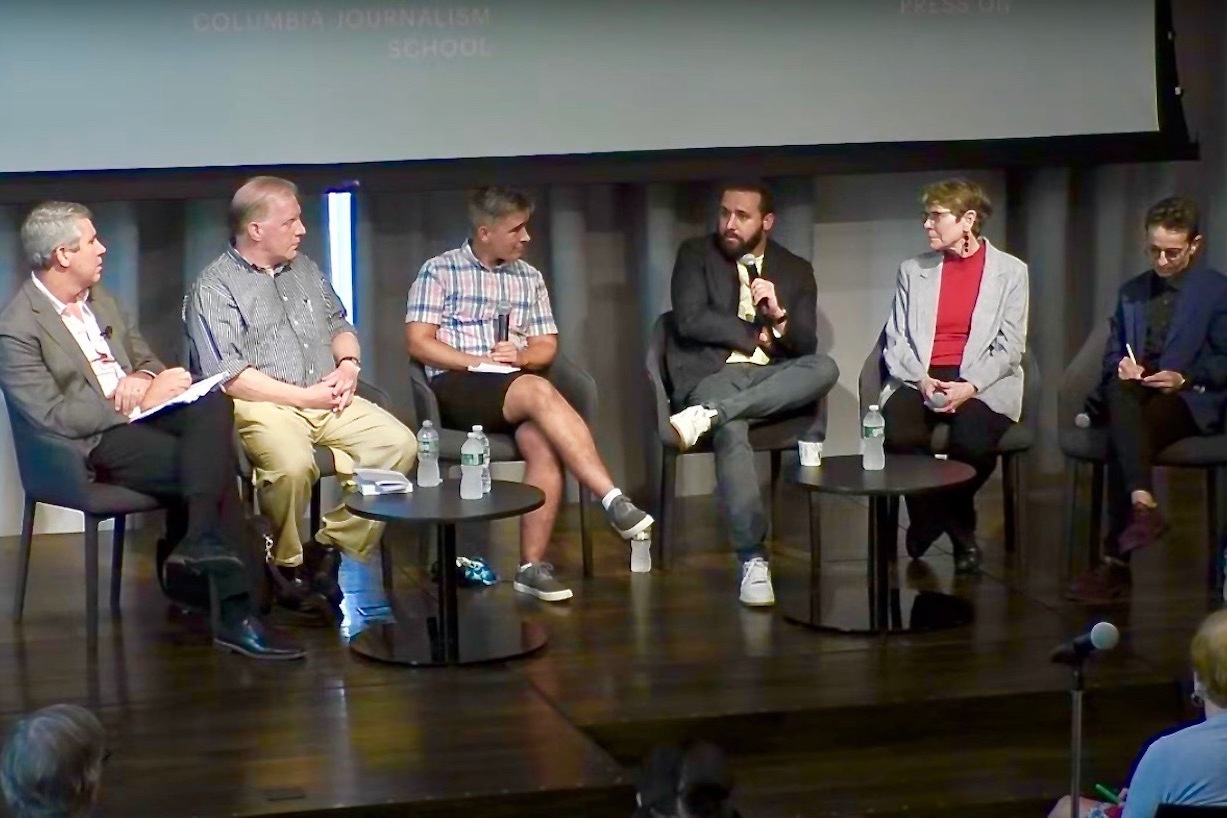“The Objectivity Wars” Panel - Columbia Journalism Review
Posted on 19th September 2022 at 16:31
By Sebastian Grace
Columbia Journalism Review’s (CJR) latest panel was focused on the ideal of objectivity; a fundamental concept for determining the truth inherent to the journalistic profession. It took place in the shaky context of a news economy with less than certain prospects.
In response to this consternation, moderator Kyle Pope, editor and publisher of CJR, began the conversation with the question: “How can, and should, journalism change in response to a world that is changing, sometimes in terrifying ways?”
Beginning with some thoughts on the origins of objectivity in journalism, David Greenberg, professor of history, journalism, and media studies at Rutgers University, noted that “it (aiming for objectivity) wasn't always the model, with an overtly partisan press for much of the 19th century.” He suggested, “We sometimes forget that with this emergence of objectivity in newsrooms, we’ve always had alongside it a very robust sphere of advocacy, opinion and partisan journalism, of provocation and polemics, of fake news.” The strength of American journalism, Greenberg argued, comes from having both models in play.
Lewis Raven Wallace, the author of The View from Somewhere: Undoing the Myth of Journalistic Objectivity, who has been previously fired for his thoughts on the ‘death of objectivity’ in the news, added to the debate from the opposite perspective next. He suggested many minority groups were not being represented in the news and “that the facade of objectivity was being silently used to exclude and silence these groups,” - a less benign analysis than Greenberg’s, for sure, as Pope jokingly alluded to.
Wesley Lowery, Pulitzer Prize winning journalist, has made his reputation writing about the issue of race in America and its newsrooms. He discussed the demographic makeup of the largest newspapers - “who was in the room, and who was not” - and, while detailing a recent history of explicit segregation, named these news organizations as “apartheid institutions” that do not reflect the communities and nation they cover, asking rhetorically, “what are their politics, what are their backgrounds and what are their biases?”
Andie Tucher, author of Not Exactly Fake News, spoke on her term “fake journalism”, and her nervousness about abandoning objectivity, regardless of its potentially decreasing utility: “Where we are now, why it (objectivity) is important, is that fake journalists are trying so hard to act as if THEY are objective.” Tucher detailed that organizations like Breitbart claim veracity and impartiality when responsible news organizations worry only about activism and transparency.
Masha Gessen, staff writer for The New Yorker, illustrated the issue of a false coexistence between advocacy journalism and mainstream journalism, “the much better resourced so-called objective media”, challenging Greenberg’s earlier proposition. Lowery agreed: “Saying what the facts mean is essential to rigorous journalism that is fair to the people involved,” but “-objectivity has always been a censorious force, never an expansive force,” he said.
Wallace was asked how he would instruct a newsroom to cover the next election, given recent contexts and the issues raised in the debate so far. They concluded with an important message: “The question is not what the big newsroom boss is going to tell the reporters to do, it’s what all of us will do to create the kind of news economy we need and deserve in order to live in a thriving democracy that we have yet to accomplish or realize.”
The debate ended with a Q&A from members of the in-person audience. Topics ranged from media literacy to the weaponization of journalism abroad and solicited more questions than answers, as the speakers reveled in meandering disagreement about the nuances of objectivity in today’s media ecosystem.
The CJR's readout from the event can be foud here: https://www.cjr.org/analysis/objectivity-wars-event-media-trust.php. For excellet further copverage of the evet, read Dan Kennedy's blog post here: https://dankennedy.net/2022/09/17/at-columbia-clashing-views-over-the-value-and-even-the-meaning-of-objectivity/
Share this post:



